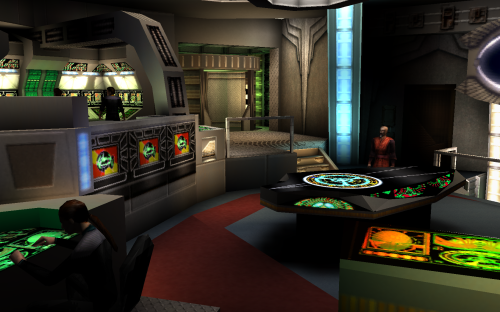I write mysteries, and I know there are some people out there who like to skip to the end before they read the rest of the book. I’m not a big pain about spoilers, but this one has never made any sense to me. I’ve heard that for some people it eases the tension, or gives you an idea if you’ll like how the book turns out before reading the whole thing, but part of being a mystery writer is trying to build tension and interest, not reduce it.

But if my book were on Kindle Unlimited, then those people who skipped to the end would be making me more money.
So here’s what happened.
Last summer Kindle Unlimited changed its rules for how it pays out to authors from the lending library fund. Prior to the change, authors were paid by the borrow (if the reader read 10%). This system resulted in a lot of short books getting paid the same as longer ones. In fact, this happened to me with my Fractals You Can Draw booklet (unintentionally I might add). I made about $0.35 for every sale, and $1.35 for every borrow.
The new system was supposed to pay you by the page read (at a rate of roughly half a cent per page). But as it turns out the system was flawed. Kindle reported the number of pages read by the farthest position in the book, not by the number of actual pages read. So if your readers skipped to the end without reading anything else, instead of counting for just 2 pages, that read counted for the whole length of the book.
Scammers naturally took advantage of this, using click-bait techniques and phonebook sized dummy books to rack up as many “pages read” as possible. In February, Amazon limited the maximum number of pages to 3000, which could still net you a little over $12 a book.
And here’s how it affects indie authors like me.
For starters the scammers are taking a big chunk out of the total lending fund, which is a fixed pool we all fight for a piece of (you can read a great analysis of this situation here). And if the scammers are top performers, they not only get the pages read, but some nice bonuses as well. And they negatively add to the reputation that all self-published books are crap.
But the other side of the coin is that Amazon’s failure to write good pages read detection code affects authors who use “scammy” techniques to provide what they think is a better reading experience.
One of the best ways for someone who’s never read your book before to decide if they want to buy from you is to read as much as possible. So a lot of authors chose to put the Table of Contents at the back of the book instead of the front, since the eReader can take them straight to it anyway. This meant that the TOC wasn’t taking up valuable sample book real estate. And even those who didn’t make this choice deliberately may have inadvertently done it by using book conversion tools like Calibre. In fact, some older eReaders prefer the contents to be at the back, otherwise they can’t detect them.
All of my eBooks actually have a front TOC and a back TOC to have the widest range of compatibility. Newer eReaders, like my current Fire, render the TOC as a side-bar, giving me direct navigation. To take advantage of similar navigation techniques on older readers, both TOC locations were required. But I have a hunch that at least some of my pages read (particularly the 582 spikes), resulted from someone going to the back TOC before reading the book. Again, not the reason I put that TOC there (for a book that was published several years ago I might add), but a factor nonetheless.
Earlier this month Amazon starting sending quality notices to authors requesting that they reformat their books or have them removed from sale. Amazon later revised this policy, stating that the back TOC is not recommended, but not in and of itself a violation of the publishing guidelines. I haven’t received a quality notice for any of my books (and Fractals: A Programmer’s Approach is the only enrolled in Kindle Unlimited anyway, though that hasn’t necessarily mattered to those getting the notices). If I do get a notice I will give my strenuous objections for why I want to retain backward compatibility. And then I may end up reformatting the book anyway.
The funny thing is, if my book were purchased by a regular library I’d get a tiny chunk of that sale, once per book, not per read, or per pages read. Kindle Unlimited, as a subscription service, is a different animal, and I think authors are entitled to a chunk of that pie. But I’ve always looked at it more like the library model, a way for people to try before they buy, or to get my book to people who can’t afford it, but still want to read it (though this last falls apart a bit with a $120 a year service).
I think Amazon needs to act with a more nuanced hand and instead of painting all indie authors with the same brush, try to enact better controls for getting rid of crappy books. And they need to write the code to actually detect pages read, rather than try to punish others for their lack of foresight.
————
Some other great articles on this subject are here and here. If all this is kind of making you annoyed with Amazon, there are many other great places to buy eBooks including Smashwords, where my latest cyber-noir mystery, Surreality, is available for all of your eReaders and without the nasty DRM.

















